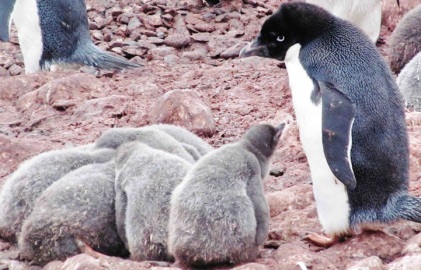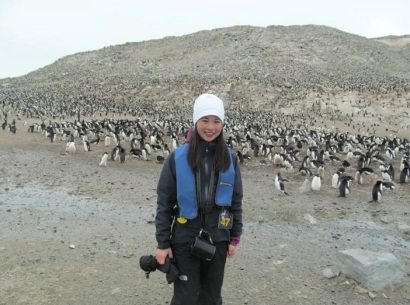Guest blog by Leah Davidson, Act for Antarctica Campaign
In 2011, I received a scholarship to travel to the Antarctic with a Canadian-based organization called Students on Ice, which takes high school students to the Polar Regions on educational expeditions. For two weeks, I conducted science experiments, listened to lectures from polar experts, studied animal behaviours, and fell absolutely in love with this beautiful continent.
Why is Antarctica so important?
- Antarctica is a fascinating ecosystem containing valuable natural resources, including 70% of Earth’s fresh water. Antarctica is also an environment of extremes, as the coldest, windiest, and driest continent on the planet. It represents one of the last true wilderness areas, where animals approach humans without fear and you feel completely distanced from modern civilization.
- Devoted to peace and science, Antarctica is a rare symbol of international cooperation. According to the Antarctic Treaty, signed in 1959, it is illegal to hunt, fish, mine, and pollute on Antarctic territory. Today, around 50 countries have ratified this treaty and agreed to protect the continent.
- Antarctica is affected by climate change. Due to Antarctica’s geographic location, the temperature is rising at several times the rate of the global average. When we visited Palmer Station, one of the American research bases, the scientists explained that the Adelie penguin population in the area has plummeted and warmer-water species, like Gentoos and fur seals, have taken its place.
What can you do?
While watching humpback whales glide through perfectly reflective water and our ship pass tabular icebergs illuminated by the glow of the sun, I started to recognize the transformational effect of natural beauty. After returning home to Sherbrooke, Canada, I put together an arts-based anthology called Antarctica: To Be Inspired with the photography and writing of the students and staff on the expedition. My friends and I have also partnered with eco-friendly companies to launch a campaign called Act for Antarctica. We are donating copies of this book to schools and youth groups and giving multimedia presentations, with the hope of educating 1000 youth about Antarctica and motivating them to undertake environmental acts. Acts could include conservation projects, lifestyle changes or awareness events. By sharing these acts via our website and social media outlets, we hope to convey the message that ecosystems are interconnected; therefore, everything you do on a local level contributes to the preservation of Antarctica for generations to come.



